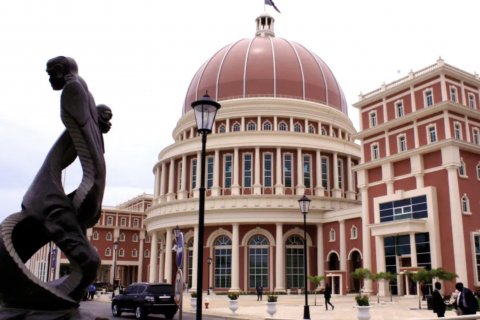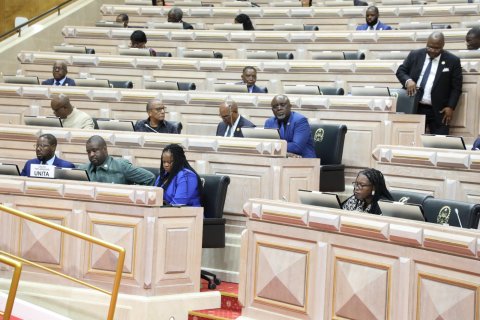According to the Atlântico Economic Outlook 2024 "Economic Recovery in the Face of Geopolitical Challenges and Uncertainties", released this Tuesday, Angola is expected to grow by 2.2 percent until December, a period in which the non-oil sector is expected to grow by 3.36 percent.
The reduction in oil production in the country from 1.080 million barrels/day to 1.060 million in 2024, associated with the fall in the average price of a barrel of oil from 75 dollars to 65 dollars/barrel, is expected to lead to a drop in exports, according to the bank's study.
For BMA analysts, the reduction in oil production should also put pressure on international reserves, affect the mobilization of tax revenues for the State, justify the exchange rate depreciation, moderate imports and reduce the possibilities of more robust growth in the non-oil sector.
Analysts also point out that the country's growth prospects for 2024 "are positive, above the estimates for the end of 2023".
The government is forecasting growth of 2.84 percent, above the 0.44 percent estimated for 2023, while the National Bank of Angola (BNA) is forecasting growth of 2.2 percent, they recall.
They note that the 2023 kwanza exchange rate stood at 39.2 percent and 41.3 percent against the dollar and euro, respectively, combined with moderate growth in Gross Domestic Product (GDP) "contributed to the public debt-to-GDP ratio once again rising above 80 percent" in 2023.
According to the Atlântico Economic Outlook 2024, the kwanza exchange rate against the dollar could continue its depreciation trend, with prospects of fluctuating between 850 and 910 dollars, on average, by the end of 2024.
"The trend could be pressured by the reduction in exports, continued disinvestment in the oil sector, settlement of external public debt and the need to preserve international reserves", it reads.
In this study, BMA analysts also consider that the increase in the State's gross financing needs, as part of the 2024 General State Budget (OGE), "could reduce the OGE's capacity to release liquidity to the economy and justify a low execution of public investment expenditure in the period in question".
They highlight that this scenario could be aggravated by a "tighter" external financing context, justified by the "reluctance" of the central banks of the major economies – the US Federal Reserve, the European Central Bank and the Bank of England – to reduce reference interest rates and a context of lower oil production and prices.
"Reaserch Atlântico" also projects an acceleration in the inflation rate from 20.01 percent in 2023 to close to 24 percent in 2023, due to challenges in domestic supply, the introduction of more restrictive customs measures on imports and indications of continued production and reduction of fuel subsidies.
The trend could boost the profitability levels of public debt securities, in a context where the restrictive trend of monetary policy is expected to continue, the analysis adds.
To moderate the inflationary trend, BMA analysts also note, the Angolan central bank could reinforce the restrictive trend of monetary policy, which began in November 2023, while it will seek to ensure a more transparent and predictable exchange rate policy in order to give greater independence and efficiency to the exchange rate market.







